
Sunny Santa Monica: The Jewel of California's Coastline
Santa Monica, a vibrant beach city in California, is renowned for its stunning coastline, iconic pier, and laid-back vibe. The city offers a perfect blend of urban sophistication and seaside charm, making it an ideal destination for tourists seeking both relaxation and adventure. Santa Monica's pristine beaches are perfect for sunbathing, swimming, and surfing, while the bustling Third Street Promenade is a shopper's paradise with its array of boutiques, restaurants, and street performers. A visit to the Santa Monica Pier is a must. This historic landmark, complete with an amusement park, aquarium, and family-friendly restaurants, offers breathtaking views of the Pacific Ocean. At night, the pier lights up, creating a magical atmosphere that captivates visitors of all ages. For a taste of culture, the city boasts a vibrant arts scene with numerous galleries, theaters, and public art installations. Outdoor enthusiasts will find plenty to do in Santa Monica. The city's extensive network of bike paths, including the famous Marvin Braude Bike Trail, provides scenic routes for cyclists and joggers alike. For those interested in wellness, the beachfront is a hub for yoga sessions and outdoor fitness classes. With its sunny weather, welcoming community, and diverse attractions, Santa Monica is a destination that truly has something for everyone.
Local tips in Santa Monica
- Arrive early to the beaches to avoid crowds, especially during weekends and holidays.
- Rent a bike to explore the Marvin Braude Bike Trail for a scenic ride along the coastline.
- Visit the Santa Monica Farmers Market on Wednesdays and Saturdays for fresh local produce and unique finds.
- Parking can be challenging; consider using public transportation or ride-sharing services.
- Take a sunset walk along Palisades Park for stunning ocean views and photo opportunities.
Neighbourhoods in Santa Monica
Sunny Santa Monica: The Jewel of California's Coastline
Santa Monica, a vibrant beach city in California, is renowned for its stunning coastline, iconic pier, and laid-back vibe. The city offers a perfect blend of urban sophistication and seaside charm, making it an ideal destination for tourists seeking both relaxation and adventure. Santa Monica's pristine beaches are perfect for sunbathing, swimming, and surfing, while the bustling Third Street Promenade is a shopper's paradise with its array of boutiques, restaurants, and street performers. A visit to the Santa Monica Pier is a must. This historic landmark, complete with an amusement park, aquarium, and family-friendly restaurants, offers breathtaking views of the Pacific Ocean. At night, the pier lights up, creating a magical atmosphere that captivates visitors of all ages. For a taste of culture, the city boasts a vibrant arts scene with numerous galleries, theaters, and public art installations. Outdoor enthusiasts will find plenty to do in Santa Monica. The city's extensive network of bike paths, including the famous Marvin Braude Bike Trail, provides scenic routes for cyclists and joggers alike. For those interested in wellness, the beachfront is a hub for yoga sessions and outdoor fitness classes. With its sunny weather, welcoming community, and diverse attractions, Santa Monica is a destination that truly has something for everyone.
When is the best time to go to Santa Monica?
Iconic landmarks you can’t miss
Santa Monica Pier
Experience the iconic Santa Monica Pier: a historic landmark offering amusement park thrills, stunning ocean views, classic arcade games, diverse dining, and unforgettable memories for all ages.
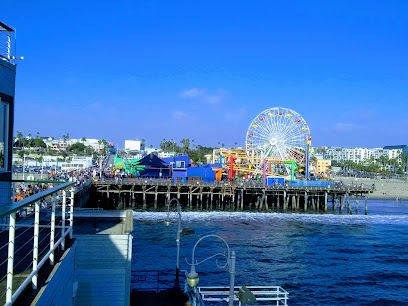
Downtown Santa Monica
Experience the best of Southern California in Downtown Santa Monica: sun-kissed beaches, vibrant shopping, diverse dining, and iconic attractions all steps from the Pacific Ocean.
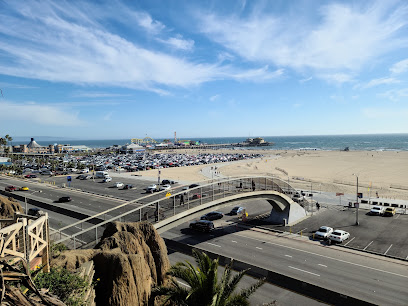
Santa Monica Place
Discover the ultimate shopping experience at Santa Monica Place, where luxury meets the laid-back charm of California's coast.
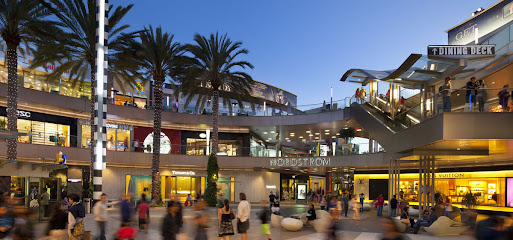
Palisades Park
Discover breathtaking ocean views, public art, and a tranquil escape at Palisades Park, Santa Monica's iconic bluff-top park with a rich history and vibrant community spirit.
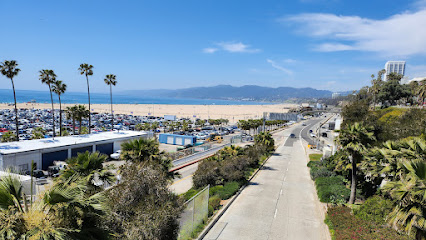
Ocean View Park
Discover Ocean View Park in Santa Monica: a serene coastal escape offering stunning ocean views, recreational activities, and a vibrant community atmosphere for locals and tourists alike.
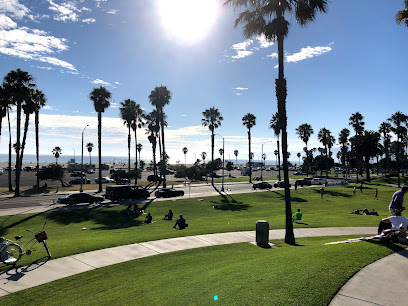
Annenberg Community Beach House
Discover Santa Monica's iconic Annenberg Community Beach House: a historic Gold Coast estate transformed into a vibrant public space with a pool, art, events, and stunning ocean views.
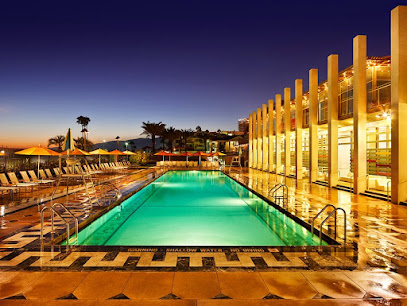
Venice Boardwalk
Experience the vibrant chaos and creative energy of the Venice Beach Boardwalk, a legendary Southern California destination where street performers, artists, and beach culture collide.
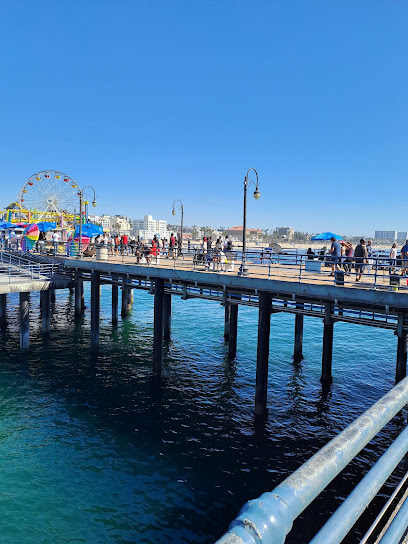
Viceroy Santa Monica
Discover luxury at Viceroy Santa Monica, where modern elegance meets stunning ocean views in the heart of California's iconic beach city.

Pacific Wheel
Experience breathtaking views of the Pacific Ocean and the Santa Monica coastline on the world's first and only solar-powered Ferris wheel, a dazzling icon of sustainable fun.
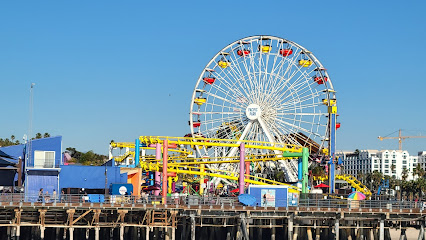
Heal the Bay Aquarium
Explore the wonders of the Santa Monica Bay at Heal the Bay Aquarium, where interactive exhibits and local marine life inspire ocean conservation for all ages under the iconic pier.
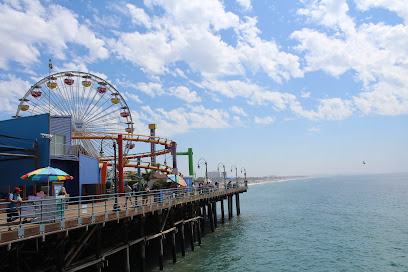
Christine Emerson Reed Park
Discover a vibrant community hub in Santa Monica's Christine Emerson Reed Park, offering recreation, culture, and relaxation for all ages, nestled between the city's bustling streets.
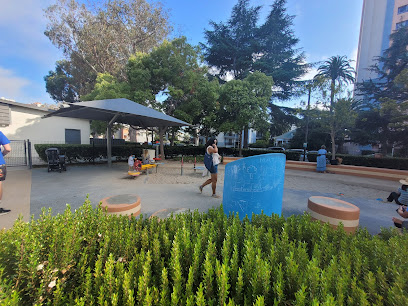
Santa Monica Pier Carousel
Experience a nostalgic ride on a beautifully restored 1922 carousel within the historic Looff Hippodrome, a National Historic Landmark on the iconic Santa Monica Pier.
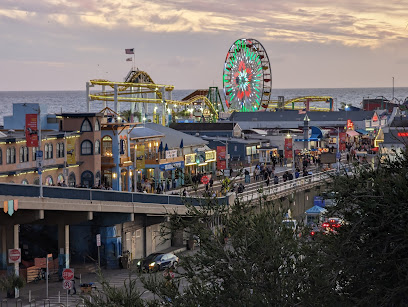
Santa Monica Pier Arch
An iconic gateway to the historic Santa Monica Pier, offering amusement park thrills, ocean views, and a taste of California's beach culture.
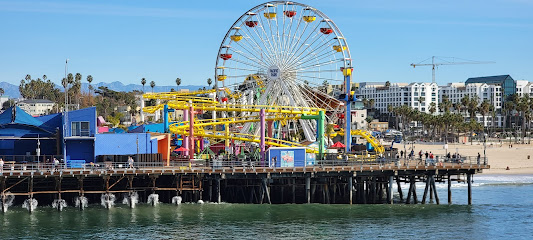
Santa Monica Statue
Discover the Santa Monica Statue in Palisades Park, a stunning cultural landmark honoring the Virgin Mary, offering serene beauty and breathtaking ocean views.
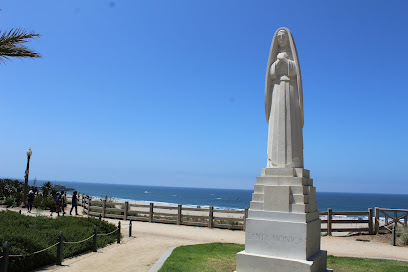
Santa Monica Civic Auditorium
Discover the Santa Monica Civic Auditorium, a landmark of mid-century modern architecture with a rich history of hosting the Academy Awards and legendary performers, currently awaiting revitalization.
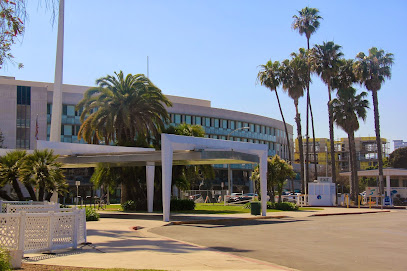
Unmissable attractions to see
Universal Studios Hollywood
Discover the thrill of movies at Universal Studios Hollywood, where excitement meets cinematic magic in a fun-filled adventure for everyone.
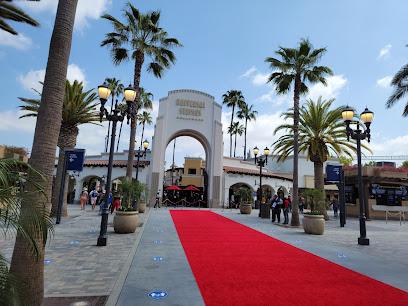
Santa Monica Pier
Discover the iconic Santa Monica Pier, a historic landmark with thrilling rides, stunning ocean views, and vibrant seaside culture perfect for every traveler.

Griffith Park
Experience the beauty and culture of Griffith Park, a sprawling oasis in Los Angeles featuring trails, the Griffith Observatory, and diverse attractions.
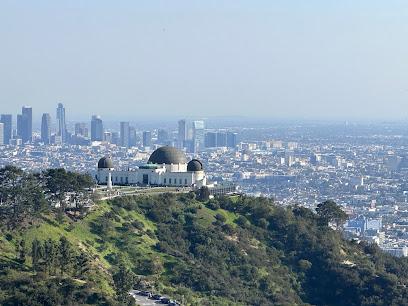
Universal CityWalk Hollywood
Experience the energy of Hollywood at Universal CityWalk, a vibrant hub for dining, shopping, and entertainment next to Universal Studios.
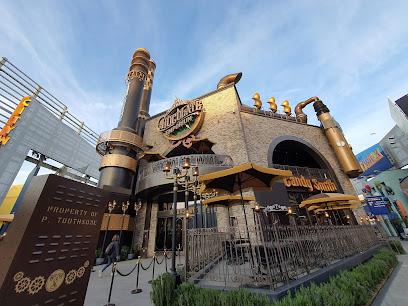
Six Flags Magic Mountain
Experience the ultimate thrill at Six Flags Magic Mountain, where unforgettable roller coasters and family fun await in Valencia, California.
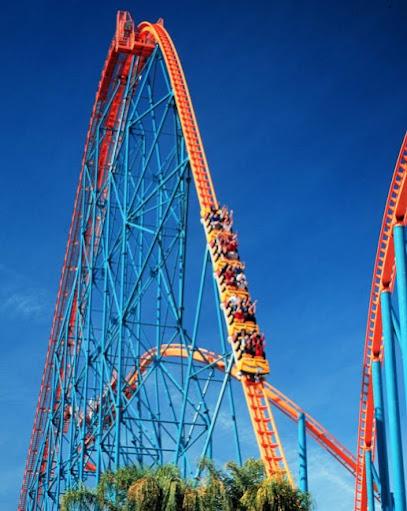
The Getty
Explore the artistic treasures at The Getty, a premier art museum in Los Angeles, offering stunning collections, architecture, and gardens.
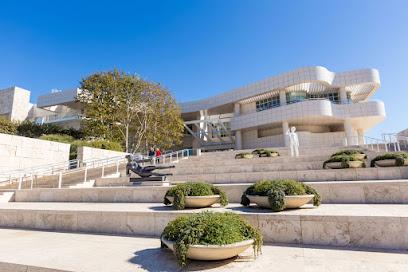
Crypto.com Arena
Discover the excitement of sports and entertainment at Crypto.com Arena, Los Angeles' top venue for unforgettable events.
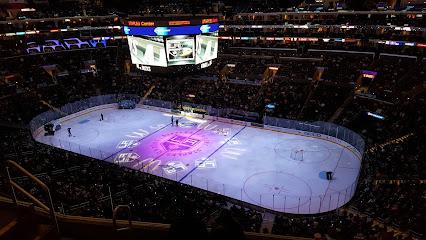
Grand Central Market
Experience the vibrant flavors of Los Angeles at Grand Central Market, a historic food court offering diverse culinary delights from local vendors.
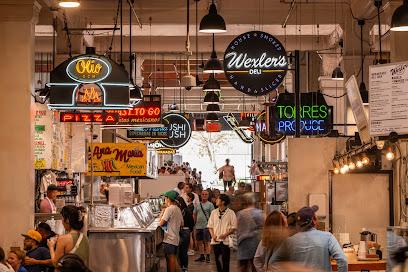
The Getty
Discover the artistic treasures of The Getty, a modern museum offering stunning collections, breathtaking architecture, and serene gardens in Los Angeles.
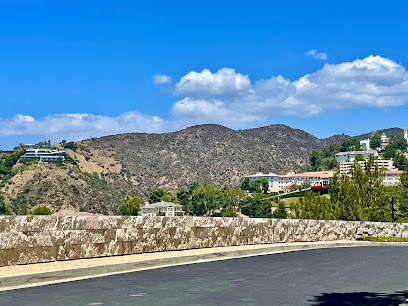
Redondo Beach Pier
Experience the charm of Redondo Beach Pier: ocean views, dining, and recreation await at this iconic Southern California destination.
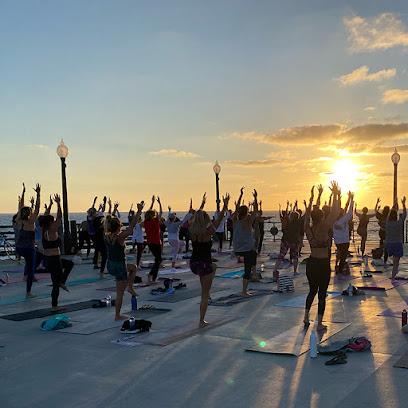
Los Angeles County Museum of Art
Experience the diverse art collections and unique architecture at the Los Angeles County Museum of Art, a cultural gem in the heart of LA.
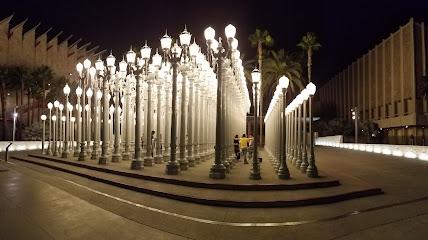
Los Angeles Zoo
Experience the extraordinary wildlife and lush botanical gardens at Los Angeles Zoo, a must-visit family-friendly destination in California.

California Science Center
Discover the wonders of science and space at the California Science Center, a premier museum in Los Angeles with interactive exhibits and an IMAX theater.
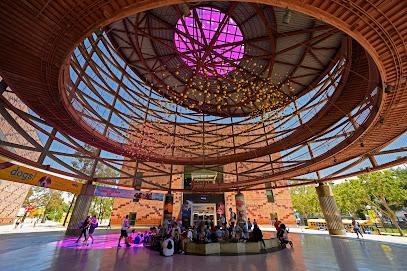
SoFi Stadium
A state-of-the-art sports and entertainment destination in Inglewood, home to the LA Rams and Chargers, and host to world-class events.
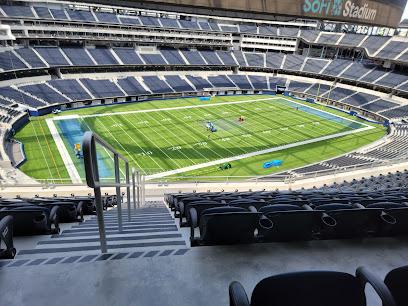
Hollywood Bowl
Experience world-class music under the stars at the Hollywood Bowl, an iconic Los Angeles amphitheater with a rich history and vibrant cultural scene.
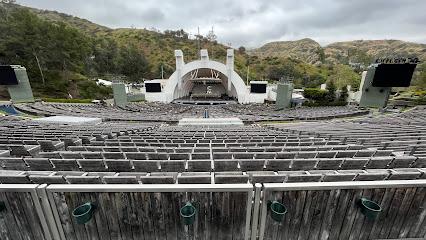
Essential places to dine
The Misfit Bar & Restaurant
Experience the vibrant flavors of American cuisine at The Misfit Bar & Restaurant in Santa Monica - where great food meets lively ambiance.
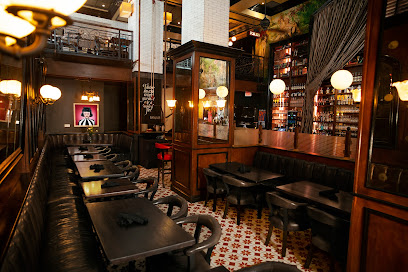
The Lobster
Experience exquisite seafood dining at The Lobster in Santa Monica, where ocean views meet culinary artistry for an unforgettable meal.
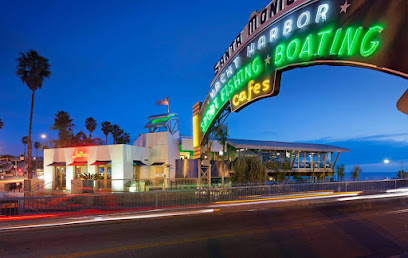
The Albright
Discover fresh seafood delights at The Albright on Santa Monica Pier, where ocean views and delicious flavors unite for an unforgettable dining experience.
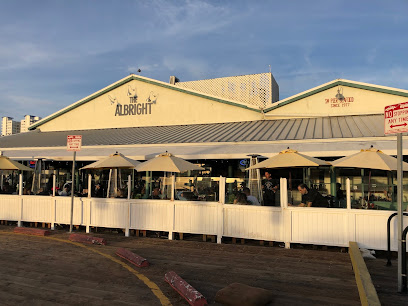
Water Grill
Experience exquisite seafood dining at Water Grill in Santa Monica - where fresh catches meet stunning ocean views.
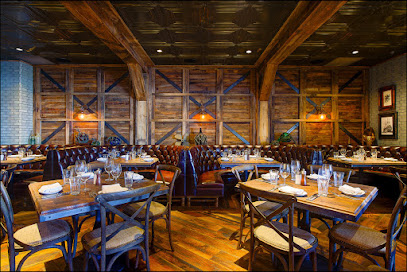
Meat On Ocean
Experience culinary excellence at Meat On Ocean - Santa Monica's premier steakhouse with stunning ocean views.
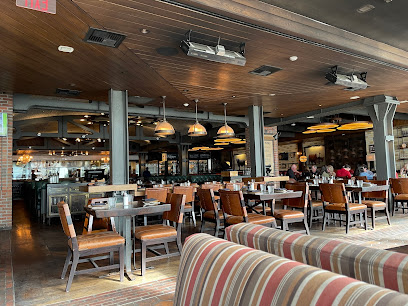
Élephante
Discover Élephante in Santa Monica: An Italian rooftop gem serving delightful dishes with breathtaking ocean views.
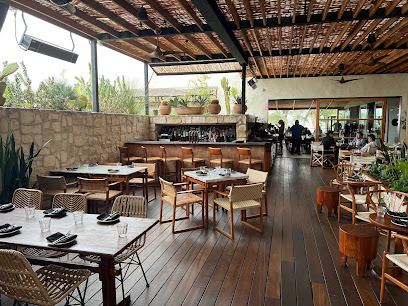
1212 Santa Monica
Discover culinary innovation and vibrant nightlife at 1212 Santa Monica—your go-to destination for New American cuisine and unforgettable experiences.
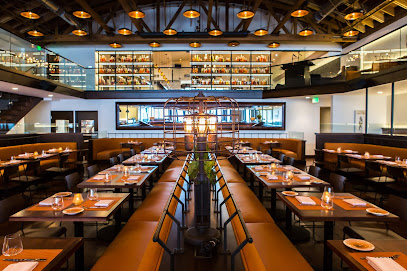
True Food Kitchen
Discover healthful dining at True Food Kitchen in Santa Monica - where delicious meets nutritious with diverse menu options for every palate.
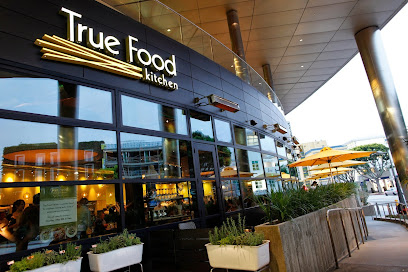
North Italia
Discover the authentic taste of Italy at North Italia in Santa Monica – where fresh ingredients meet classic recipes.
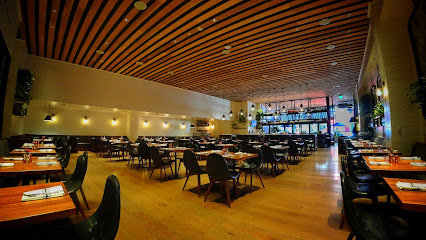
Fritto Misto
Discover authentic Italian flavors at Fritto Misto in Santa Monica – where every dish tells a story of culinary tradition.
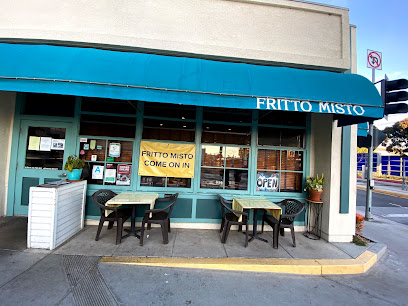
SUGARFISH by sushi nozawa
Discover exceptional sushi at SUGARFISH by sushi nozawa in Santa Monica—where quality meets tradition in every bite.
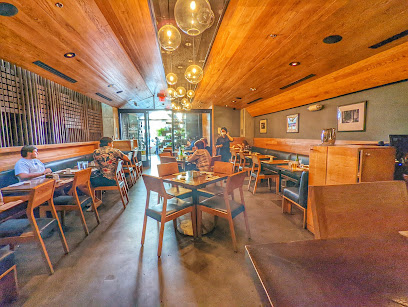
Milo & Olive
Experience the best of Italian cuisine at Milo & Olive in Santa Monica - where every bite tells a story.
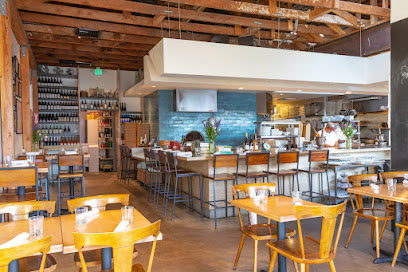
UOVO | Santa Monica
Discover authentic Italian flavors at UOVO in Santa Monica - where fresh ingredients meet traditional recipes for an unforgettable dining experience.
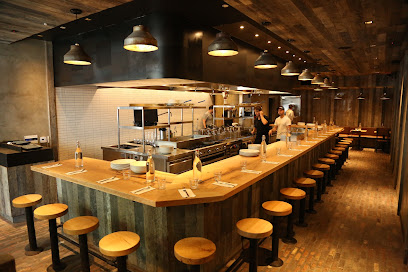
Blue Plate Oysterette
Experience coastal dining at Blue Plate Oysterette in Santa Monica - where fresh seafood meets stunning ocean views.
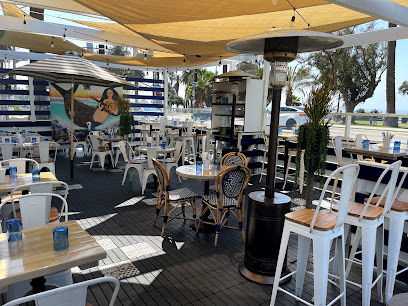
RED O CANTINA
Experience authentic Mexican cuisine with a modern twist at RED O CANTINA in Santa Monica - where vibrant flavors meet coastal charm.
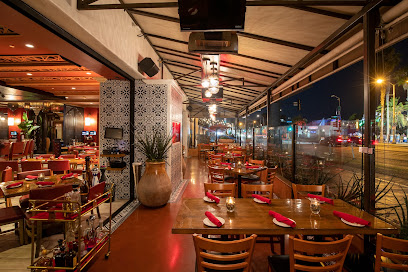
Markets, malls and hidden boutiques
Downtown Santa Monica
Discover Downtown Santa Monica: A shopping paradise with dining, entertainment, and the stunning Pacific Ocean at your doorstep.
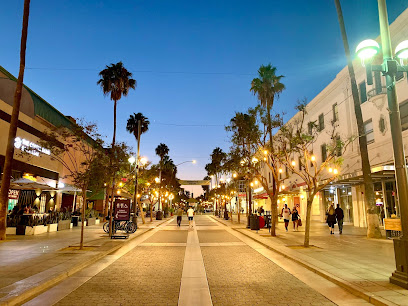
Santa Monica Place
Discover Santa Monica Place, a premier shopping mall offering a unique blend of luxury retail, dining, and entertainment along the stunning California coast.
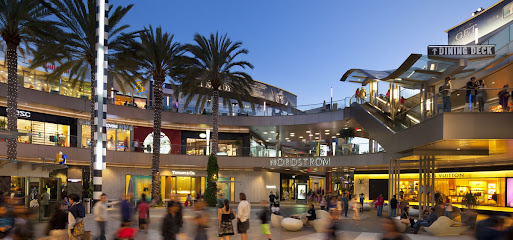
Santa Monica Pier Bait and Tackle (Route 66 Gift Shop)
Explore Santa Monica Pier Bait and Tackle, your go-to gift shop for unique souvenirs and fishing supplies on the iconic Santa Monica Pier.
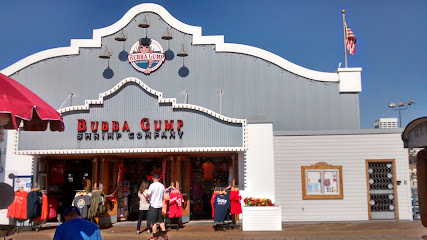
UNIQLO Santa Monica Place
Explore modern fashion for all ages at UNIQLO Santa Monica Place, a stylish clothing store in the heart of Santa Monica.
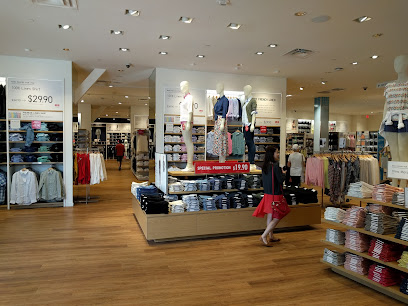
Urban Outfitters
Discover Urban Outfitters in Santa Monica, where fashion meets fun with a unique blend of clothing, beauty, and home goods.
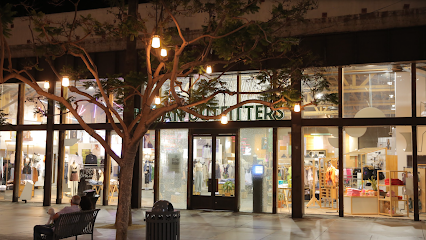
Adult Love Boutique
Explore the Adult Love Boutique in Santa Monica for an unforgettable shopping experience filled with unique gifts and alluring lingerie.
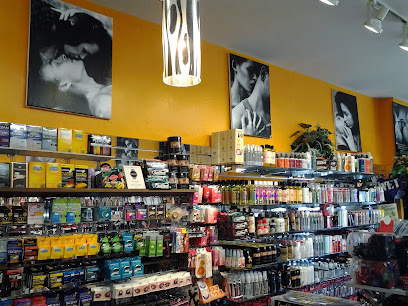
Anthropologie
Shop at Anthropologie in Santa Monica for a unique blend of women's fashion, beauty products, and home décor in a stunning coastal setting.
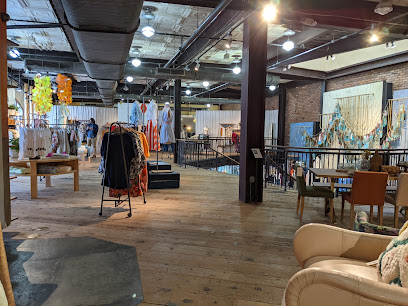
Kathmandu Boutique
Explore Kathmandu Boutique in Santa Monica for unique fashion, accessories, and gifts that celebrate style and cultural diversity.
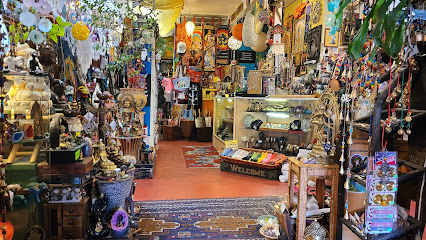
Santa Monica Pier Rock Shop
Discover unique souvenirs and gifts at Santa Monica Pier Rock Shop, where coastal treasures await every visitor in the heart of Santa Monica.
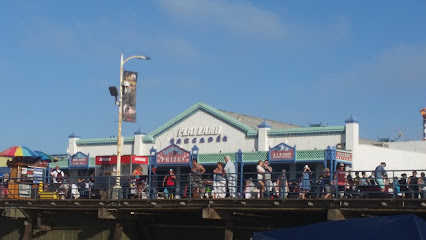
Santa Monica Airport Outdoor Antique & Collectible Market
Explore unique antiques and collectibles at the Santa Monica Airport Outdoor Antique & Collectible Market, a hidden gem for treasure hunters.
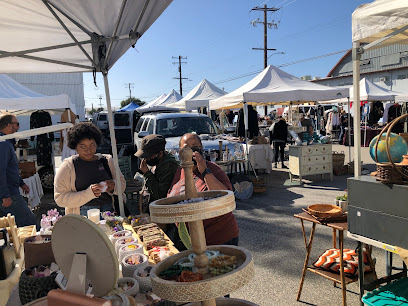
66-To-Cali
Discover the iconic 66-To-Cali in Santa Monica, where shopping meets history, and find the perfect souvenir from your California adventure.
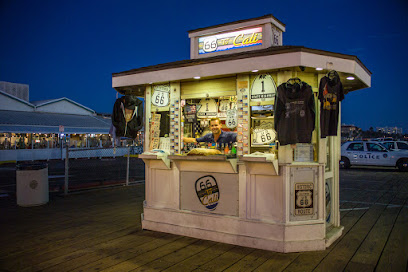
Sand 'n Surf
Explore Sand 'n Surf in Santa Monica for unique gifts and souvenirs reflecting the vibrant coastal culture.
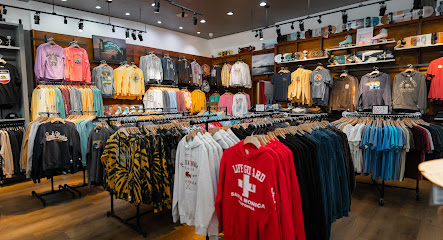
Timeless Symbols
Explore Timeless Symbols in Santa Monica, your go-to destination for unique gifts, metaphysical supplies, and spiritual treasures.

The Acorn Store
Discover the whimsical world of The Acorn Store in Santa Monica, where unique gifts and imaginative toys await every visitor.
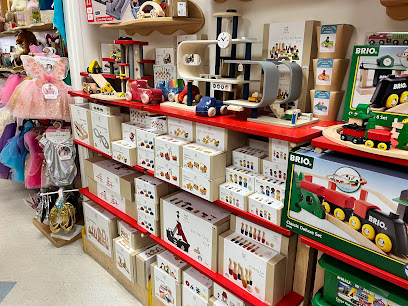
Lucky Penny General Store
Explore unique gifts and local treasures at Lucky Penny General Store in Santa Monica, where creativity meets community spirit.
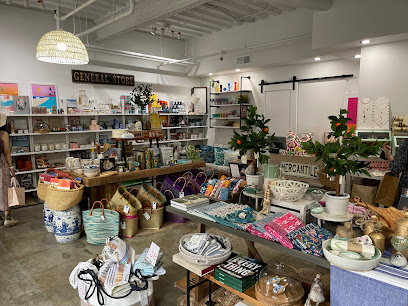
Essential bars & hidden hideouts
Ye Olde King's Head
Discover the charm of British cuisine at Ye Olde King's Head in Santa Monica, a brewpub and tea house offering a delightful culinary experience.
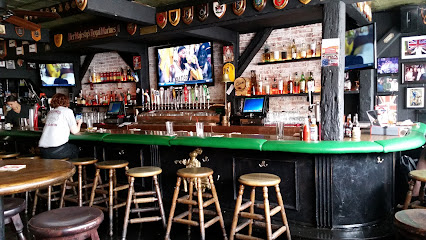
The Misfit Bar & Restaurant
Experience the vibrant atmosphere and delicious American cuisine at The Misfit Bar & Restaurant in Santa Monica, perfect for brunch or a night out.
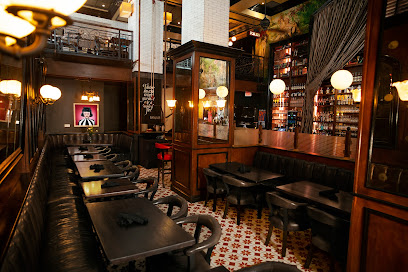
THE BUNGALOW
Discover The Bungalow in Santa Monica: A vibrant bar and restaurant offering stunning ocean views, delicious cuisine, and a lively atmosphere.
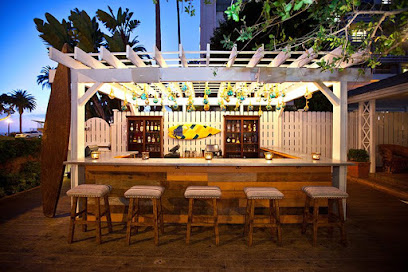
Jameson’s Pub
Discover the charm of Jameson's Pub, an authentic Irish pub in Santa Monica serving hearty meals, craft drinks, and a warm atmosphere for all visitors.
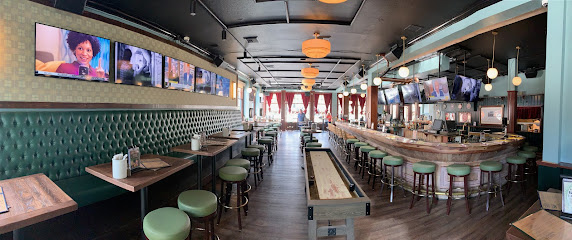
The Brixton
Experience the best of American cuisine at The Brixton, a lively gastropub in the heart of Santa Monica, where flavor meets fun.

Bodega Wine Bar
Experience the perfect blend of artisan pizzas, fine wines, and a cozy ambiance at Bodega Wine Bar in Santa Monica, California.
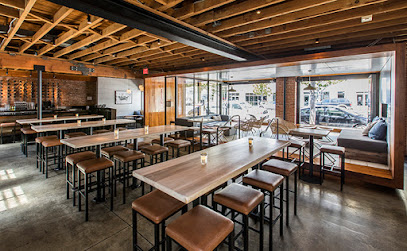
The Daily Pint
Experience Santa Monica's vibrant bar scene at The Daily Pint, featuring a wide selection of craft beers and delicious pub fare in a cozy atmosphere.
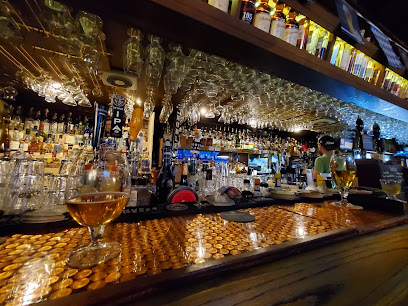
The Coco Club
Discover vibrant nightlife at The Coco Club, a stunning rooftop bar in Santa Monica offering breathtaking ocean views and artisan cocktails.
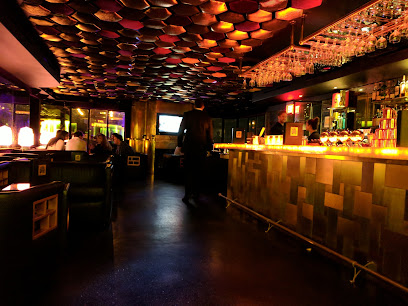
The Chestnut Club - Santa Monica Bar - Cocktails - Happy Hour 5-7pm
Experience the vibrant cocktail culture at The Chestnut Club in Santa Monica, where innovative drinks meet a cozy social atmosphere.
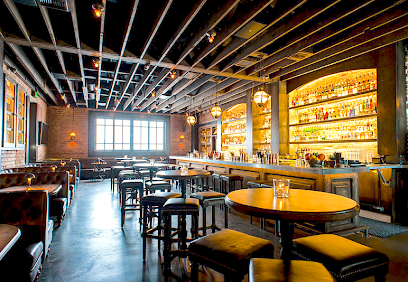
Santa Monica Whaler
Experience a delightful blend of coastal charm and culinary excellence at Santa Monica Whaler, your go-to grill for fresh flavors and ocean views.
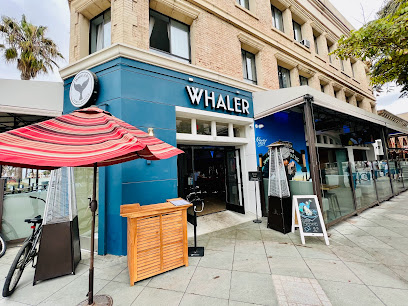
Tavern on Main SM
Experience the best of Santa Monica dining at Tavern on Main SM, where delicious grill fare meets a lively bar atmosphere.
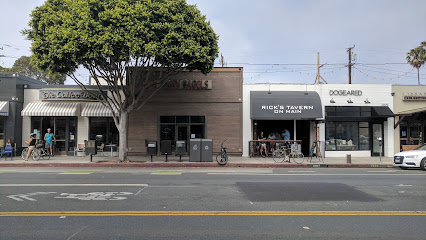
Lanea
Experience the vibrant atmosphere of Lanea, a Santa Monica cocktail bar offering delicious Mexican cuisine and live music in a chic beach setting.
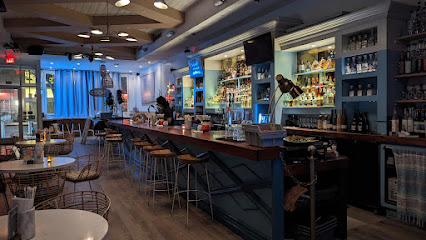
Basement Tavern
Basement Tavern: A lively bar and American restaurant in Santa Monica, perfect for great food, drinks, and vibrant nightlife.
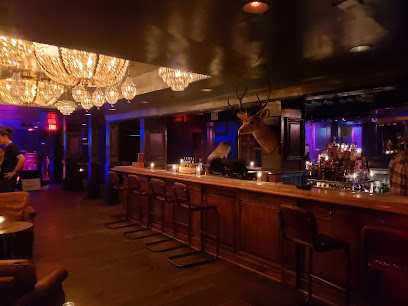
Esters Wine Shop & Bar
Experience the finest selection of wines and gourmet bites at Esters Wine Shop & Bar in Santa Monica, where every sip tells a story.
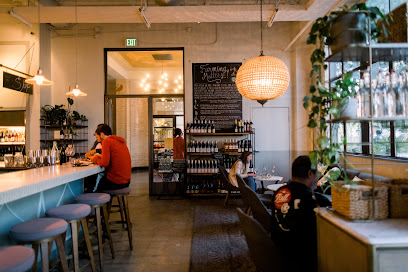
Local Phrases
-
- HelloHey
[hey] - GoodbyeLater
[lay-ter] - YesYeah
[yeh] - NoNope
[nohp] - Please/You're welcomePlease/No worries
[pleez/noh wur-eez] - Thank youThanks
[th-anks] - Excuse me/SorrySorry
[soh-ree] - How are you?How you doin'?
[how yoo doh-in] - Fine. And you?Good. You?
[gud yoo?] - Do you speak English?You speak English?
[yoo speek ing-glish?] - I don't understandI don't get it
[i dohnt get it]
- HelloHey
-
- I'd like to see the menu, pleaseMenu, please
[men-yoo, pleez] - I don't eat meatNo meat for me
[noh meet for mee] - Cheers!Cheers!
[cheers] - I would like to pay, pleaseCheck, please
[chek, pleez]
- I'd like to see the menu, pleaseMenu, please
-
- Help!Help!
[help] - Go away!Go away!
[goh uh-way] - Call the Police!Call the cops!
[call the cops] - Call a doctor!Call a doc!
[call a doc] - I'm lostI'm lost
[im lost] - I'm illI'm sick
[im sik]
- Help!Help!
-
- I'd like to buy...I wanna buy...
[i wah-nuh buy] - I'm just lookingJust browsing
[just broh-zing] - How much is it?How much?
[how much?] - That's too expensiveToo pricey
[too pry-see] - Can you lower the price?Can you do a deal?
[can yoo doh a deel?]
- I'd like to buy...I wanna buy...
-
- What time is it?What's the time?
[whats the time?] - It's one o'clockIt's one
[its one] - Half past (10)Ten-thirty
[ten-thur-tee] - MorningMorning
[morn-ing] - AfternoonAfternoon
[af-ter-noon] - EveningEvening
[ee-ven-ing] - YesterdayYesterday
[yes-ter-day] - TodayToday
[toh-day] - TomorrowTomorrow
[toh-mor-row] - 1One
[wuhn] - 2Two
[too] - 3Three
[three] - 4Four
[for] - 5Five
[fahyv] - 6Six
[siks] - 7Seven
[sev-uhn] - 8Eight
[ayt] - 9Nine
[nain] - 10Ten
[ten]
- What time is it?What's the time?
-
- Where's a/the...?Where's the...?
[wheres the] - What's the address?What's the address?
[whats the address] - Can you show me (on the map)?Can you show me (on the map)?
[can yoo show mee on the map] - When's the next (bus)?When's the next (bus)?
[whens the next bus] - A ticket (to ....)One ticket (to ....)
[wuhn tik-it to]
- Where's a/the...?Where's the...?
History of Santa Monica
-
Long before Spanish explorers set foot in what is now Santa Monica, the area was inhabited by the Tongva people. They lived in small villages along the coast and were skilled in fishing, hunting, and basket weaving. The Tongva referred to the area as 'Kecheek' which means 'where the land meets the sea'. Their rich culture and traditions laid the foundation for the community that would later develop.
-
In 1769, Spanish explorer Gaspar de Portolá led an expedition through the area, marking the beginning of European influence. By 1828, the land was part of the Rancho San Vicente y Santa Monica, a large Mexican land grant given to Francisco Sepúlveda. The mission period saw the establishment of the Mission San Gabriel Arcángel, which influenced the region’s development and introduced agriculture and livestock farming.
-
After the Mexican-American War, California became part of the United States in 1848. The land where Santa Monica now stands was purchased by Colonel Robert S. Baker and Senator John P. Jones in 1872. They envisioned a prosperous town and laid out the city streets. Santa Monica was officially incorporated in 1886, and it quickly became a popular seaside resort due to its beautiful beaches and favorable climate.
-
In 1909, the Pacific Electric Railway extended its line to Santa Monica, making the city more accessible to residents of Los Angeles and beyond. This development brought an influx of tourists and new residents, contributing to Santa Monica's rapid growth. The iconic Santa Monica Pier, built in 1909, became a popular destination and remains a historic landmark today.
-
During the 1920s and 1930s, Santa Monica became a playground for Hollywood stars and industry moguls. Its luxurious hotels, beach clubs, and piers offered a glamorous escape from the hustle and bustle of Los Angeles. Celebrities like Marion Davies and William Randolph Hearst built lavish beachfront estates, and the city’s reputation as a chic and fashionable destination was solidified.
-
World War II brought significant changes to Santa Monica. The Douglas Aircraft Company, based in the city, played a crucial role in the war effort by producing military aircraft. The aerospace industry continued to thrive post-war, attracting workers and boosting the local economy. This era marked a period of economic growth and urban development for Santa Monica.
-
In the latter half of the 20th century, Santa Monica faced challenges such as economic downturns and urban blight. However, the city underwent significant revitalization efforts starting in the 1980s. The redevelopment of the Third Street Promenade transformed it into a bustling pedestrian-friendly shopping and entertainment district. Santa Monica also became known for its progressive environmental policies, aiming to be a model of sustainability and innovation.
Santa Monica Essentials
-
Santa Monica is easily accessible from various parts of the United States and internationally. The nearest major airport is Los Angeles International Airport (LAX), located approximately 8 miles (13 kilometers) south of Santa Monica. From LAX, you can take a taxi, ride-sharing service, or shuttle bus to reach Santa Monica. Another option is Bob Hope Airport (Burbank), which is around 25 miles (40 kilometers) away. If you're driving, Santa Monica is conveniently located off Interstate 10 (I-10), which runs directly into the city.
-
Santa Monica offers various transportation options to help you get around the city. The Big Blue Bus system provides extensive coverage, with routes connecting to neighboring areas like Los Angeles. The Metro Expo Line also offers light rail service from Downtown Los Angeles to Santa Monica. For shorter distances, consider renting a bike or using e-scooters, which are popular and widely available. Taxis and ride-sharing services like Uber and Lyft are also readily accessible.
-
The official currency in Santa Monica, like the rest of the United States, is the US Dollar (USD). Credit and debit cards are widely accepted in most establishments, including restaurants, shops, and hotels. ATMs are abundant, so you can easily withdraw cash if needed. Mobile payment options like Apple Pay and Google Wallet are also commonly accepted.
-
Santa Monica is generally a safe destination for tourists, but it's always wise to take standard precautions. While most areas are safe, it's advisable to avoid the area around the Santa Monica Pier late at night, as it can attract some less desirable activity. Keep an eye on your belongings in crowded places and avoid isolated areas after dark. Always be aware of your surroundings and use common sense.
-
In case of an emergency, dial 911 for immediate assistance. Santa Monica has a well-equipped police department and several medical facilities, including the UCLA Medical Center, Santa Monica. Pharmacies are also readily available for minor health issues. It is highly recommended to have travel insurance that covers medical emergencies.
-
Fashion: Do wear casual and comfortable clothing, especially if you plan to visit the beach. Don’t wear overly revealing swimwear away from the beach area. Religion: Do respect all places of worship and avoid disruptive behavior. Public Transport: Do be courteous and give up your seat to elderly passengers or those with disabilities. Don’t eat or drink on public transport. Greetings: Do greet people with a smile and a friendly 'hello.' Handshakes are also common. Eating & Drinking: Do try local restaurants and food trucks. Don’t tip less than 15-20% in restaurants, as tipping is customary.
-
To experience Santa Monica like a local, visit the Farmers Market on Wednesdays and Saturdays for fresh produce and local specialties. Spend some time at Palisades Park for stunning ocean views and a relaxing atmosphere. Consider renting a bike and riding along the Marvin Braude Bike Trail, also known as The Strand, which offers a scenic ride along the coast. Don’t miss a visit to the Third Street Promenade for shopping, dining, and street performances.
Trending Landmark in Santa Monica
-
Santa Monica Pier
-
Downtown Santa Monica
-
Santa Monica Place
-
Palisades Park
-
Ocean View Park
-
Annenberg Community Beach House
-
Venice Boardwalk
-
Viceroy Santa Monica
-
Pacific Wheel
-
Heal the Bay Aquarium
-
Christine Emerson Reed Park
-
Santa Monica Pier Carousel
-
Santa Monica Pier Arch
-
Santa Monica Statue
-
Santa Monica Civic Auditorium
Nearby Cities to Santa Monica
-
Things To Do in Venice Beach
-
Things To Do in Inglewood
-
Things To Do in Hollywood
-
Things To Do in Malibu
-
Things To Do in Los Angeles
-
Things To Do in Burbank
-
Things To Do in Glendale
-
Things To Do in Monterey Park
-
Things To Do in Pasadena
-
Things To Do in Long Beach
-
Things To Do in Santa Clarita
-
Things To Do in Anaheim
-
Things To Do in Huntington Beach
-
Things To Do in Oxnard
-
Things To Do in Costa Mesa















